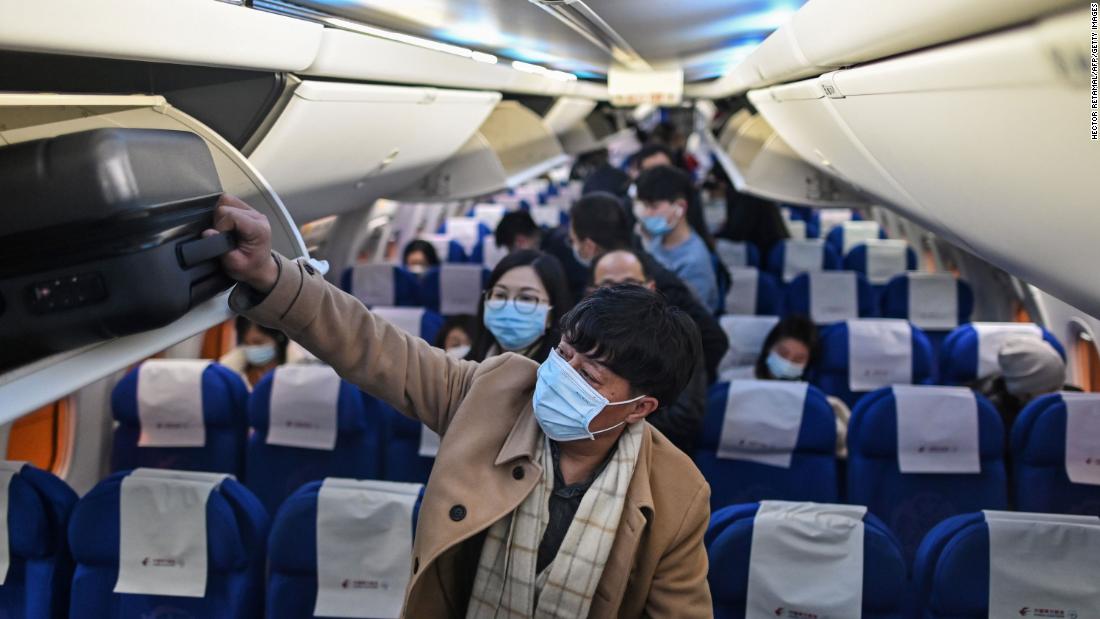You are here
Sun, 2021-05-09 13:37 — mike kraft
 How to fly safely a year into the pandemic The pandemic is still with us well into 2021, but the urge to travel is growing stronger as millions get vaccinated daily. Get the latest advice from medical experts on how to fly as safely as possible. CNN
How to fly safely a year into the pandemic The pandemic is still with us well into 2021, but the urge to travel is growing stronger as millions get vaccinated daily. Get the latest advice from medical experts on how to fly as safely as possible. CNN
 How to fly safely a year into the pandemic The pandemic is still with us well into 2021, but the urge to travel is growing stronger as millions get vaccinated daily. Get the latest advice from medical experts on how to fly as safely as possible. CNN
How to fly safely a year into the pandemic The pandemic is still with us well into 2021, but the urge to travel is growing stronger as millions get vaccinated daily. Get the latest advice from medical experts on how to fly as safely as possible. CNN The US Centers for Disease Control and Prevention recently eased its domestic and international travel guidance for vaccinated people, stating that travelers who are fully vaccinated "can travel safely within the United States" but noted a greater risk for international travel.
However, the agency is still discouraging nonessential travel due to rising numbers of Covid-19 infections. Driven by extremely contagious variants that have invaded all 50 states, the virus is currently hitting healthier 30- to 50-year-olds hard.
...
Is it truly safe to travel by air right now, even if you're fully vaccinated?
"There are three factors to consider," said Linsey Marr, a professor of civil and environmental engineering at Virginia Tech, who studies the airborne transmission of Covid-19.
"How prevalent is the virus in the population? If it's highly prevalent, then there's a good chance that someone who is infected is going to be on a plane," Marr said.
Why does that matter if you're vaccinated? "We're still learning how effective the vaccines are against variants of the virus," the CDC said recently, as well as "how long COVID-19 vaccines can protect people."
In addition, real world studies of the Pfizer-BioNTech and Moderna vaccines show they are still 90% protective against the coronavirus -- but that means it's still possible to get infected.
"Is everyone masked? That's also very important," said Marr, who is world renowned for her 2011 discovery that influenza can hover in air for an hour via respiratory microscopic droplets called aerosols. ...
"Vaccinated people could potentially still get COVID-19 and spread it to others," according to the CDC, as respiratory droplets fall onto surfaces or float in the air. "We're still learning how well COVID-19 vaccines keep people from spreading the disease," the agency added.
"The risk for on-board transmission of SARS-CoV-2 during long flights is real," one investigation stated. "Long flights not only can lead to importation of COVID-19 cases but also can provide conditions for superspreader events."
Still, a Harvard University report released last October concluded the risk of catching Covid-19 on an airplane is rare, as long as people are masked, the airport uses safety precautions and the planes have installed HEPA, or "high efficiency particulate air" filters. The HEPA filters are rated to remove 99.97% of dust, pollen, mold, bacteria and other airborne particles with a size of 0.3 microns. Covid-19 is thought to be between 0.06 to 1.4 microns.
Which brings Linsey Marr to her third point: "Finally, air travel safety could be improved if airlines and manufacturers install and use HEPA filters properly in more planes. Proper filtration is a key to safe air travel."
All large commercial airliners -- the kind that jet travelers coast to coast and to farflung wonders across the sea -- have built-in HEPA filters to sanitize the breath passengers exhale.
Called recirculated air, it is typically mixed 50/50 with cooled "bleed air" brought in off the engines, then fed back into the cabin several times an hour.
Not all planes in service today have HEPA filtration. Pleasure planes flown by individuals, "puddle jumpers" used to carry people to and fro in Alaska, Canada and other remote locations, and many small jets leased or chartered by companies to hustle their executives between meetings don't have HEPA filtration.
Regional airlines around the world may also use older jets, turboprops and piston engine powered planes originally built without HEPA filters to fill out their fleets, shuttling thousands of travelers to regional destinations or larger airline terminals to catch connections....
Country / Region Tags:
General Topic Tags:
Problem, Solution, SitRep, or ?:
Groups this Group Post belongs to:
- Private group -



Recent Comments